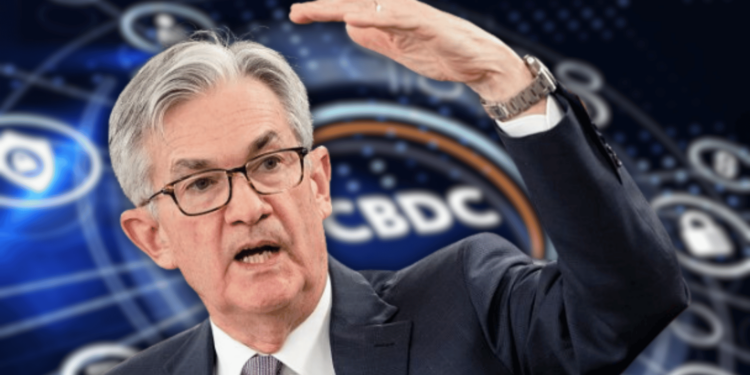- Fed Chair Jerome Powell confirmed the U.S. will not create a central bank digital currency under his leadership.
- Powell emphasized that launching a CBDC would require congressional approval, which is unlikely with a Republican majority.
- The Fed’s new FedNow system offers instant money transfers, addressing similar issues a CBDC would tackle.
Federal Reserve Chair Jerome Powell made it crystal clear on Tuesday: under his leadership, the Fed will not pursue a central bank digital currency (CBDC). His statement officially puts an end to years of speculation about whether the U.S. would follow in the footsteps of countries like China, which has already rolled out its own digital yuan.
During a Senate hearing, Powell faced a direct question from Senator Bernie Moreno (R-Ohio):
“Can I have your commitment that as long as you’re the chairman of the Federal Reserve system, we will never have a central bank digital currency?” Moreno asked.
“Yes,” Powell replied without hesitation.
“Thank you for that, I think that’s extremely important,” Moreno responded. “It makes me very happy to hear you say that.”
Powell’s term as Fed chair runs until May 2026, so for now, a Fed-backed cryptocurrency seems off the table.
Years of Uncertainty Come to an End
The Fed has been studying the digital currency issue for at least four years. Back in 2022, it released a detailed report that weighed the pros and cons but stopped short of making a recommendation. Over time, most officials expressed skepticism, citing concerns over privacy, security, and the lack of an urgent need for a CBDC.
Powell has repeatedly pointed out that launching such a project would require congressional approval. And with both the House and Senate under Republican control, the likelihood of that happening seems slim to none.

Enter FedNow: An Alternative Solution
While the Fed won’t be diving into digital currency, it has already introduced a different kind of payment innovation—FedNow. This system is designed to offer near-instant money transfers and solve many of the same problems a CBDC would address, such as faster and more efficient transactions.
Senator Moreno, who was clearly pleased with Powell’s stance on CBDCs, urged the Fed to continue expanding FedNow. “We need to make 24-hour money transfers widely available,” Moreno emphasized, suggesting that improving access to this service could further reduce the need for any government-backed digital currency.
For now, Powell’s commitment has put the brakes on the U.S. joining the global digital currency race. But as technology evolves and financial needs shift, the debate may be far from over.














